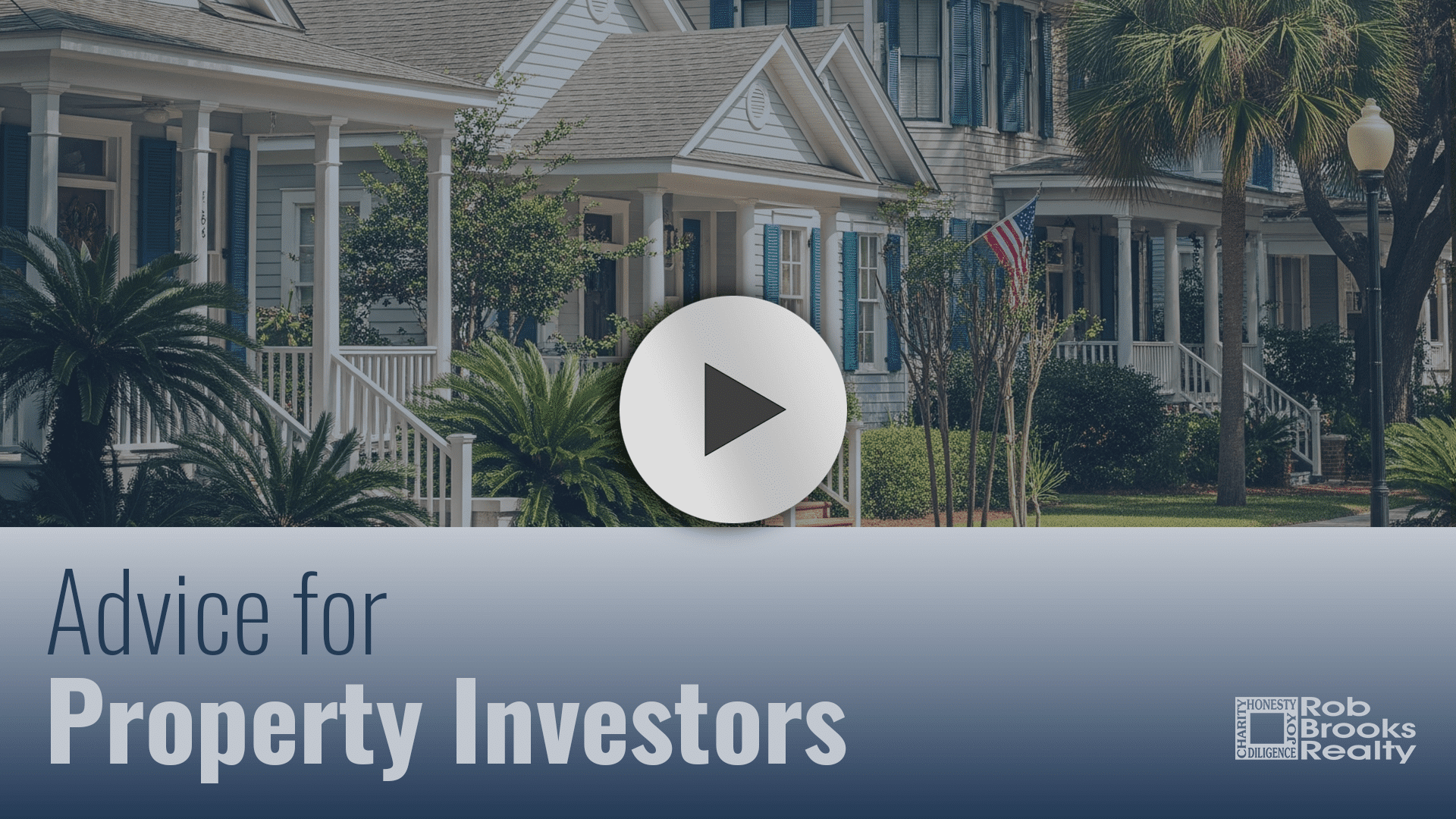Advice for Property Investors
Michael Gregg and Rob Brooks discuss four key considerations for anyone looking to invest in real estate for rental purposes. They cover the importance of analyzing the area's prognosis (including school ratings and crime maps), understanding financing options (like higher interest rates for investment loans), comparing area rents to property purchase costs to assess rental demand, and evaluating the durability of the property to minimize long-term maintenance expenses.
Transcript
Hello everybody, this is Michael Gregg with Rob Brooks Realty, and I'm Rob with Rob Brooks Realty. I'm a property manager for Rob, Rob is here in the flesh. And Rob, we're going to talk a little bit about investments today. What are some good tips you can give those that are looking to purchase a property as an investment, whether they manage it out or live in it for a while then manage it out, or whatever the case may be?
There are a lot of websites and books that people can go to get information on how to invest in real estate or what to look for when buying real estate for investment. But I'm just going to give the basics. There are four main things you need to be looking for when you're selecting a house for investment, or if you're trying to decide if your house is good to keep in a long-term property management position when you leave and then just keep that as your investment option.
By the way, yes, I invest in real estate, and that's all of my investments; I don't do any stocks or anything like that. I'm sure people can do well in that, but I just see so much good return in long-term management of real estate that that's where I have my investments.
The first thing that a potential buyer needs to be concerned about is the area. You want to make sure that the neighborhood not just looks good and feels good to them and they feel safe, but what is the outlook, the general direction this neighborhood or part of town is going? You want your investment to hold its value, and you want rents to continue going up. School performance can be a big determinant on that, as can crime maps; you can check out the crime rates around a neighborhood or part of town. If you have, say, a larger house that has multiple bedrooms, then you bet that school rating is going to play a big difference to your tenants. So check that out. I look for areas of town that are on the upswing, so to speak. In our Emerald Coast area, we have a lot of nice areas, and the military influence and the vacation influence have certainly made our area prime, in my opinion, for property management. We have a lot of good areas. So, that would be number one.
What would you say are some types of loans that are out there for investors? Of course, there are a few options for financing property. One is cash, and after that, you don't get the same kind of loan that you would for buying your own personal residence. Expect that the best you'll be able to get is probably going to be around 80 percent of the value, and you're going to pay a little bit higher interest rates when you're purchasing a house.
In the area, you're not just looking for what is the prognosis of the area, but also what are the rents that are happening in the area. When you're working with your realtor, ask the realtor to not just give the common information on what's for sale in an area, but also ask that agent to give you some ideas of what rents are in that area. You want an idea of, "Okay, these are the prices for sale in the area, and then these are the prices what tenants are willing to pay in this area." Do quick math to figure out, "Okay, so they're paying a lot more in this area for rent per purchase price than they are in this area," so you can figure out where the smarter investment is by doing that quick math. And how long it takes to rent those properties out as well, whether it's weeks or months, so those are all important factors. So, the rental demand is a huge thing.
I'll tell you a final thing too that I'm always looking at that the owners rarely are looking at, and that's the durability of the property. I walk into a house, and it's a perfectly manicured lawn, there is white brand new carpet all the way through the house, and there are a lot of azalea bushes that are perfectly trimmed in the backyard. I'm looking at maybe a pool and some other things. Okay, that's all very nice and desirable things that we enjoy, but they're not durable. The carpets will become worn, the perfectly manicured lawn will not be perfectly manicured after a few years, and we'll take steps to minimize, but in the end, I think it's a law of thermodynamics where things just tend to degenerate, and if there's a tenant in a property, it tends to degenerate quicker than if an actual owner is in the property. So, tile floors are great. A lawn where the grass extends all the way to the house where there are not many bushes to maintain is good. And pools, while they're great to have as owners, and maybe in certain subdivisions it is a great bonus for a tenant to have that pool, and they're willing to pay quite a bit more, but for the most part, most tenants are not willing to pay above and beyond the upkeep it would take on that pool.
These are four things that you need to be aware of when you're looking to buy a property. Of course, you can call us at Rob Brooks Realty for more details on it, but the four things in review: look at the prognosis of the neighborhood or area of town, look at what the area rents are, look at what the house costs are, and then, what is the durability of the property that you're considering buying?
All right, well, thank you so much, Rob. And again, for all your real estate and property management needs, I'm Michael with Rob Brooks Realty Property Management here in Northwest Florida, and this is Rob Brooks. Thank you so much for joining us, and thanks for watching!
Start a conversation with our team
Let us help you think through the best strategy for your property. Get in contact with our property management team today.




